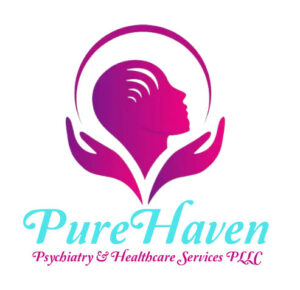Early Symptoms of Depression: Uncover the Silent Signs Before It’s Too Late
Depression is a common but serious mental health condition that affects millions worldwide. However, the early symptoms of depression often go unnoticed or are mistaken for normal mood fluctuations or stress. Recognizing these initial signs is crucial because early intervention can significantly improve recovery and prevent more severe episodes. This blog will guide you through the subtle but important early symptoms of depression, how to differentiate them from typical sadness, and when to seek professional help.
Table of Contents
- What Are the Early Symptoms of Depression?
- Emotional Signs to Watch For
- Physical Symptoms That May Indicate Depression
- Behavioral Changes Linked to Early Depression
- How Early Symptoms Differ from Normal Sadness
- When to Seek Help for Depression
- The Importance of Early Diagnosis
- Call to Action
- Final Thoughts
1. What Are the Early Symptoms of Depression?
The early symptoms of depression can be subtle and vary from person to person. These signs often appear gradually and can be easy to overlook or attribute to external factors like stress or fatigue. Common early symptoms include persistent feelings of sadness, loss of interest in previously enjoyed activities, low energy, changes in appetite or sleep patterns, and difficulty concentrating.
2. Emotional Signs to Watch For
One of the most noticeable early symptoms of depression is a persistent low mood that lasts for weeks or more. This is more than just feeling sad or having a bad day; it is a deep, unshakable sadness or hopelessness. Other emotional signs include irritability, feelings of guilt or worthlessness, and frequent tearfulness.
3. Physical Symptoms That May Indicate Depression
Depression doesn’t only affect emotions; it can also cause physical symptoms. Early signs include changes in appetite — either eating too much or too little — unexplained aches or pains, fatigue despite adequate rest, and disturbances in sleep, such as insomnia or oversleeping. These physical symptoms can sometimes lead individuals to seek medical help for physical ailments without addressing the underlying depression.
4. Behavioral Changes Linked to Early Depression
In the early stages, depression may lead to noticeable changes in behavior. These include withdrawing from social activities, neglecting responsibilities at work or home, decreased productivity, and a loss of interest in hobbies. Some people may also exhibit increased use of alcohol or drugs as a coping mechanism.
5. How Early Symptoms Differ from Normal Sadness
It’s normal to feel sad or down occasionally, but the early symptoms of depression persist and interfere with daily life. Unlike normal sadness, depression impacts your ability to function, enjoy life, and maintain relationships. Recognizing this difference is key to seeking the right support and treatment.
6. When to Seek Help for Depression
If you notice several of the early symptoms of depression lasting more than two weeks, it’s important to seek professional help. Early intervention through therapy, medication, or a combination of treatments can dramatically improve outcomes. Also, if you or a loved one experience thoughts of self-harm or suicide, seek emergency help immediately.
7. The Importance of Early Diagnosis
Early diagnosis of depression allows for timely treatment, reducing the severity and duration of symptoms. It also helps prevent complications like anxiety, substance abuse, and chronic health problems. With the right support, individuals can regain control over their lives and enjoy a fulfilling future.
8. Call to Action
If you or someone you care about is showing signs of depression, don’t wait. Early recognition and treatment make all the difference. At Pure Haven Psychiatry, we specialize in compassionate, personalized mental health care tailored to your unique needs. Visit purehavenpsyc.com today to schedule an appointment and take the first step toward healing and hope.
9. Final Thoughts
The early symptoms of depression can be silent and easily mistaken for everyday struggles, but they are crucial warning signs. Recognizing these symptoms early opens the door to effective treatment and a better quality of life. Remember, you are not alone, and help is available.
Disclaimer
This blog is for informational purposes only and is not a substitute for professional medical advice. If you are experiencing severe symptoms or thoughts of self-harm, please seek immediate help from a licensed healthcare professional or emergency services.

